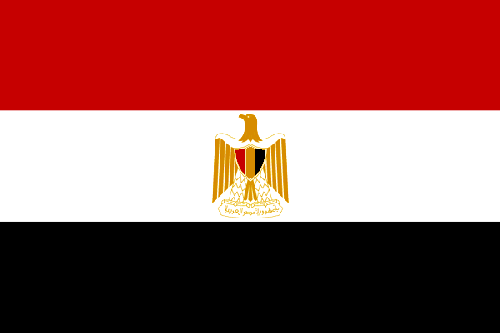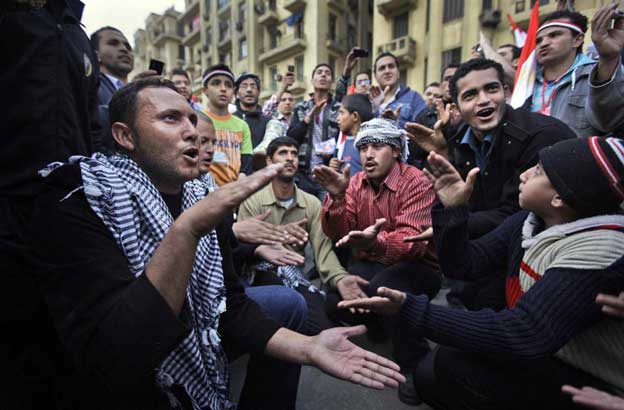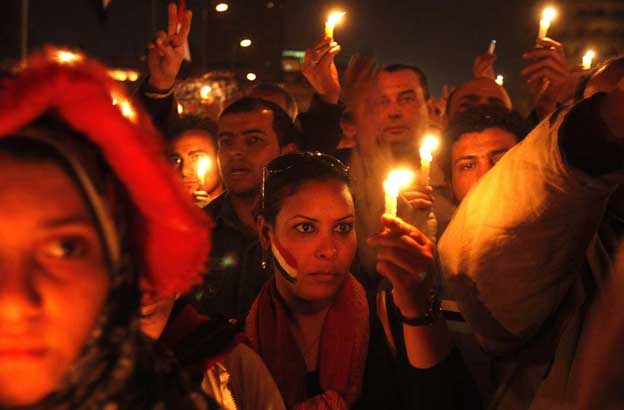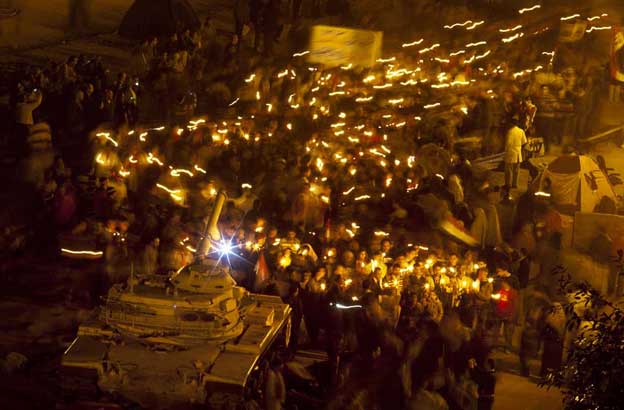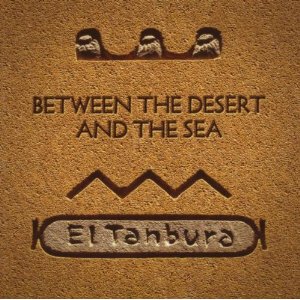Egypt
Traditional Egyptian Folk Music and the 25 January Revolution: The Tie That Binds
Bedouins from North Sinai dance and sing traditional songs in Tahrir Square during the anti-government demonstrations in January (Photo: Ahram Online)In the wake of the 25 January revolution in Egypt, TheBluegrassSpecial.com reached out to the El Mastaba Center for Egyptian Folk Music to find out what role the traditional folk artists of Egypt had played in inspiring and entertaining the protesters as they continued demonstrating against the regime of President Hosni Mubarak, eventually driving him from power. The mainstream media in the United States made frequent references to the protesters being energized by rap and hip-hop, but we stumbled across a video of the popular traditional Egyptian folk group El Tanbura drawing a large crowd to its performance in Tahrir Square, and wondered if there was more going on with traditional music’s relation to the protests than was being reported Stateside. The El Tanbura video is below. Seeing is believing.
El Tanbura of Port Said performing in Tahrir Square on January 25 as the Egyptian protests against President Mubarak’s regime gathered momentumKristina Nelson from the El Mastaba Center for Egyptian Folk Music posted the following communiqué online regarding the Center’s role in the demonstrations in Tahrir Square.
"We are at the beginning of a new day in the history of Egypt in which every Egyptian can now claim justice, respect, not on the bases of wealth or power, but on their membership in the human community. This new day offers unprecedented opportunities for free expression, innovation and experimentation and the role of creative expression as a model for social change can now be realized.
"In 2000, Zakareya Ibrahim established El Mastaba Center for Egyptian Folk Music. The Center builds on his own efforts of several decades to rescue the heritage of Egyptian folk music, bringing it back to its previous glory and recapturing the major role it had always played in the daily life of Egyptians. The Center also works to raise the status of the traditional musician whose music and creativity have been marginalized and compromised by state and tourism agendas.
"Historically, Egyptian folk music came from the people and reflected the every-day life of the Egyptians. It shared with those people their joy and pain, their victories and defeats and was always a mirror of all the major happenings in Egypt. Today El Mastaba follows this same road as it works on renewing the national memory and emphasizing the idea of belonging and works to recapture the roots of the Egyptian character, all of which come to life through the folk music.
El Tanbura, ‘Shoft Toshy,’ from the group’s 2008 Between The Desert and The Sea album. El Tanbura is a collective of veteran Egyptian master musicians, singers, fishermen and philosophers. For the past 20 years they've been custodians to some of Egypt's oldest folk melodies at their home in Port Said, the Mediterranean gateway to the Suez Canal. Their music is driven by the seductive call of the Simsimiyya--an ancient lyre dating back to the times of the Pharaohs."For these reasons, El Mastaba played an active role in the Egyptian Revolution, bringing the groups under its umbrella to Tahrir Square to share their music in five evening concerts on the stages built in the square. The three bands that participated in the concerts were all chosen from the Suez Canal area, as their music has always been a symbol for peoples' resistance. El Mastaba presented the 'Hinna' band from Suez, 'El Waziry' band from Ismailia and the famous 'El Tanbura' from Port Said.
"We also propose that all civil organizations working in art and culture meet and start a dialogue on the new opportunities open to cultural work under the new realities of freedom of speech. As organizations and individuals working in the field of culture, we should now work together for a new future for our country, one that we create ourselves and that is not imposed on us.
"We invite you to join us as we celebrate this new beginning and continue this journey together."
Demonstrators stage a candlelight vigil in Tahrir Square for those protesters killed during the 25 January revolution. (Photo: Ahram Online)And from the El Mastaba Center for Egyptian Folk Music, founder Zakareya Ibrahim sent the following statement:
Egypt is rich in different forms of music, folk songs and traditional artists who preserve the nation's memories and express sentiment and affection of people. However, this great heritage is threatened with extinction. It is worth mentioning that the efforts done by formal bodies are limited and just kept this branch within theatrical types and rhythms which are not enough to express the heart and core of our musical folk history.
El Mastaba Center was founded in July 2000 to revive, recreate, develop and document the Egyptian folk traditional musical heritage. As an initiative by Zakaria Ibrahim and some colleagues, the Center, funded by the Ford Foundation, succeeded in collecting and documenting some types of music and folk singing in the Canal area. The Canal area is characterized by an extreme heroic vitality in expressing popular resistance during the British occupation from 1882-1954 (Galaa treatment), the tria-aggression in 1956 and the Israeli occupation in Sinai from 1967-1982.
The efforts made by the Center led to great success in reviving the songs and music of Semsemiya and Damma songs. The El Tanbora troupe has well expressed this activity by presenting shows and festivals in many countries such as Canada, France, Switzerland, England, Maly, Sweden and elsewhere.
A candlelight processional past an Egyptian Army tank in Tahrir Square (Photo: Ahram Online)El-Mastaba Center documents the folk music heritage in the Canal area and in Egypt in general, and emphasizes its richness and artistic expression through different historical phases. Our efforts in this pursuit require hard work to search out folk arts and folk artists at their original sites and then document their work. This important function helps us resist the current wave of commercial arts and the rise of certain cultural values that weaken the link between artists and their social reality. It also resists the culture of globalization, which destroys the nation's memory and identity.
In the efforts of El-Mastaba Center to recreate traditional folk music, we also want to open the way to interaction. However, from our point of view, the cultural interaction has to be between our creative arts, not with strange or imported ones. Accordingly, El-Mastaba Center works to:
*Re-create and revive traditional music in different areas in Egypt.
*Document an archive about Egyptian traditional songs, music and musical instruments.
*Develop traditional music from the side of performance, forms of instruments and their artistic abilities. In addition to developing the musicians themselves as individuals or groups.
*Marketing and publicizing these outputs of traditional arts to listeners, viewers and the public.
*Organizing performances by popular groups, in order to broadcast their creative achievements and to bring them into contact with one another.
*Assistance with the creation of a network of popular artists (individuals and groups).
*The publication of printed materials dealing with this music and enriching the discussion around it.
*The organization of conferences and seminars on popular music.
*Holding workshops to teach popular music in its own settings to preserve it from extinction.
El Tanbura, ‘Friends of Bambouty’The Center is technically and artistically equipped to accommodate researchers and others interested in popular music and to provide audiovisual materials on a number of popular groups, including artists from Port Said (El Tanbura), Ismailiyya (El Sohbagiyya, El Rango), El Matariyya, Daqahliyya Governorate (El Baramka), and Suez (El Hinna).
The Center also possesses audiovisual material on the Zar. And we are going to continue our efforts in this field.
El Mastaba Center is located in downtown Cairo and presents five regular weekly concerts, two in Cairo (El Tanbura Band and Rango Band) and three in the Suez Canal region (Port Said, Ismailia and Suez). The main musical categories we focus on are: Simsimeya and Damma (music from Port Said and Suez Canal region, Rango (music originating from the Sudanese and Egyptian Zar rituals) and Beduin music (from Sinai).
For more information please visit us at www.elmastaba.org.
El Tanbura’s Between the Desert and the Sea is available at www.amazon.com
Founder/Publisher/Editor: David McGee
Contributing Editors: Billy Altman, Laura Fissinger, Christopher Hill, Derk Richardson
Logo Design: John Mendelsohn (www.johnmendelsohn.com)
Website Design: Kieran McGee (www.kieranmcgee.com)
Staff Photographers: Audrey Harrod (Louisville, KY; www.flickr.com/audreyharrod), Alicia Zappier (New York)
E-mail: thebluegrassspecial@gmail.com
Mailing Address: David McGee, 201 W. 85 St.—5B, New York, NY 10024


